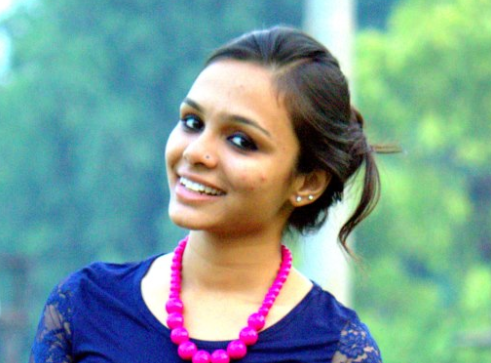
Mansi Khandelwal
JWB Blogger
This District’s First Community Radio Is The Only Source Of Info For Women
- JWB Post
- November 4, 2016
Is radio just about listening to latest tracks and celebrity birthday celebrations and interviews? Well, in today’s time I guess that holds true for most of the cities. Ohh, and not just songs, radio channels these days are majorly about advertisements!
Every day while coming to office, I travel in the cab for approximately half an hour, and in all this time I get to only hear a maximum of four songs that too less than half of their duration.
With a trend of hardly getting to hear songs on FM these days, this amazingly informative radio station, founded in September 2010 by publisher and activist Archana Kapoor,that operates under the purview of her Delhi-based NGO-Seeking Modern Applications for Real Transformation (SMART).
For eight and a half hours a day, seven days a week, Radio Mewat promotes women’s empowerment at the grassroots level in around 300 villages in the region. For the women of Kherla village, in Haryana district, this radio station is the only medium to fetch information.
Mewat that has a population of around 1.2 million has limited access to basic facilities such as drinking water, electricity, education and good roads. Dominated by Muslims, this district has an extremely patriarchal approach towards the education of girls. The males in this village consider educating girls to be immaterial and against social norms. Now isn’t that crazy?
Thus when Radio Mewat first aired, there was a lot of resistance from the village’s men. The men feared that the community radio would promote immorality and turn women against them.
Hoora Begum, 55, assembles women and tunes into their most favorite radio program, “Apno Swasthya Apne Haath” (Our Health in Our Hands). Unlike advertisements and half cut songs, this show features discussions and advice and is the district’s first community radio station. “This radio station is very special for us,” says Begum, as the women – some holding babies to their chests, others hiding their faces from the glances of men with hems of their saris – listen avidly. “It talks about our problems and solutions, and in our native language.”
Rubbishing the views of the males in the village, the women of Kherla came out strong in their support of the radio station. “The more our men overreacted, the more curious we became,” said Begum.
With their strong will, the men eventually allowed their women to listen to the show, which deals with day-to-day issues like health, education and the economic empowerment of women. Before Radio Mewat, “There was no one in the village to tell us what is good or bad for our children,” says Akhteri, a mother of four. “Now we get information on the radio about how to take care of our children’s health and personal hygiene.”
To reach people in villages where nobody owns a radio set, Radio Mewat worked with communities to build up listeners’ groups and provided each group with its own battery-operated radio set.
That’s too awesome!
According to Radio Mewat’s project coordinator Meenakshi Kukreti, when they started the initiative, the village women were reluctant to express their opinions. These women have been chained and burdened by the decisions and chauvinistic nature of their male counterparts which shouted out through their words that the women had nothing worthy to say. “The community radio tries to make them aware of their rights so that they speak up,” she says. “They now have a platform where they can put forward their grievances and in turn be educated on important issues.”
Not just this, Radio Mewat also acts bridges the gap between locals and various government departments, helping to raise awareness of issues like education, health, agriculture, justice and the environment.
“It has helped them get actively involved and ask questions,” says Dinesh Shastri, Mewat’s district education officer. “This engagement is empowering them to fight for their rights, raise their voices and educate themselves.”
Kherla village has witnessed a lot of changes since the introduction of Radio Mewat. Would you believe that Begum’s daughter Farheen had to drop out in 2008 because of a village custom that disallows girls from being educated beyond the age of puberty? But through the educational programs she heard on the radio, Farheen challenged this illogical tradition and passed her secondary school exam and recently joined Radio Mewat as an intern. “I was even scared of my own self. I would never go out with anyone other than my family,” she says. “Today, I feel privileged. I represent the radio in my village and stand for my village on the radio.”
Begum who herself is deeply inspired by the Radio initiative said “I don’t want to marry [Farheen] off at an early age, which is a trend here. I want her to be among this village’s respectable women of tomorrow.”
- 0
- 0






